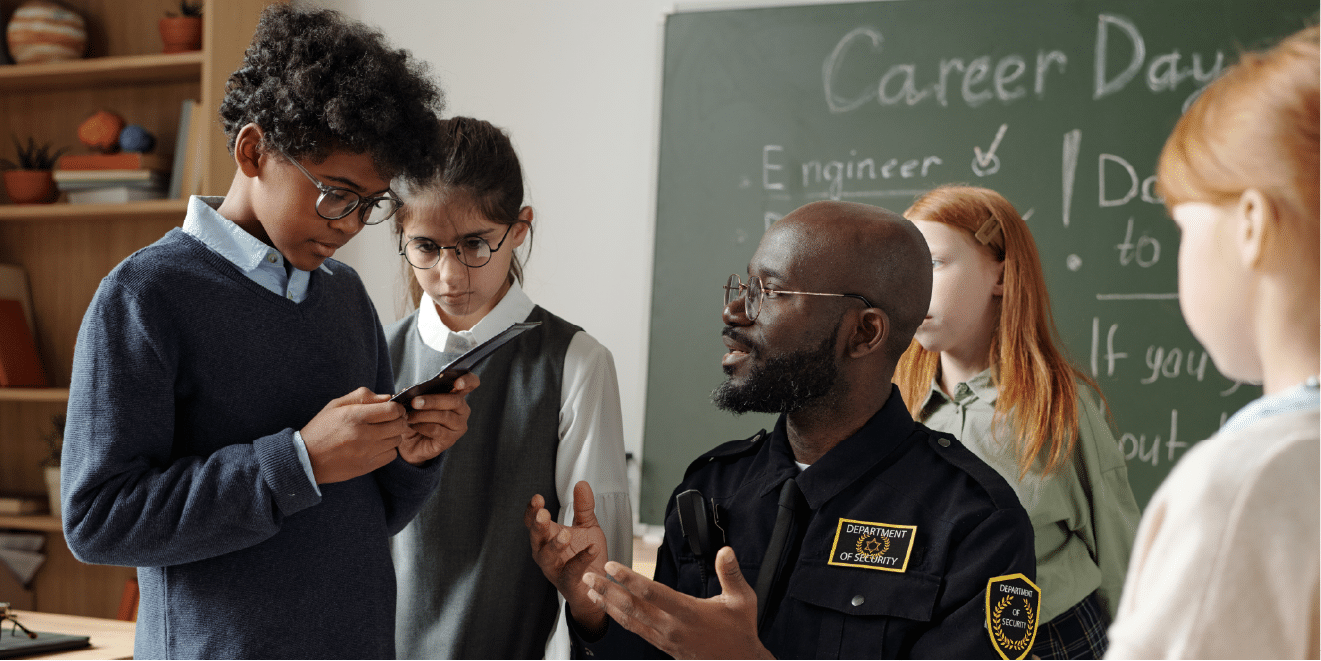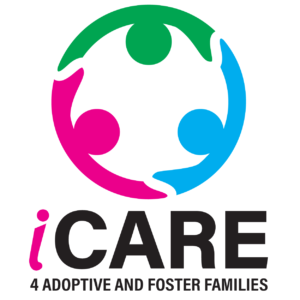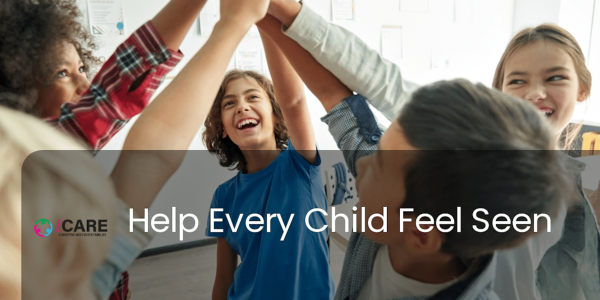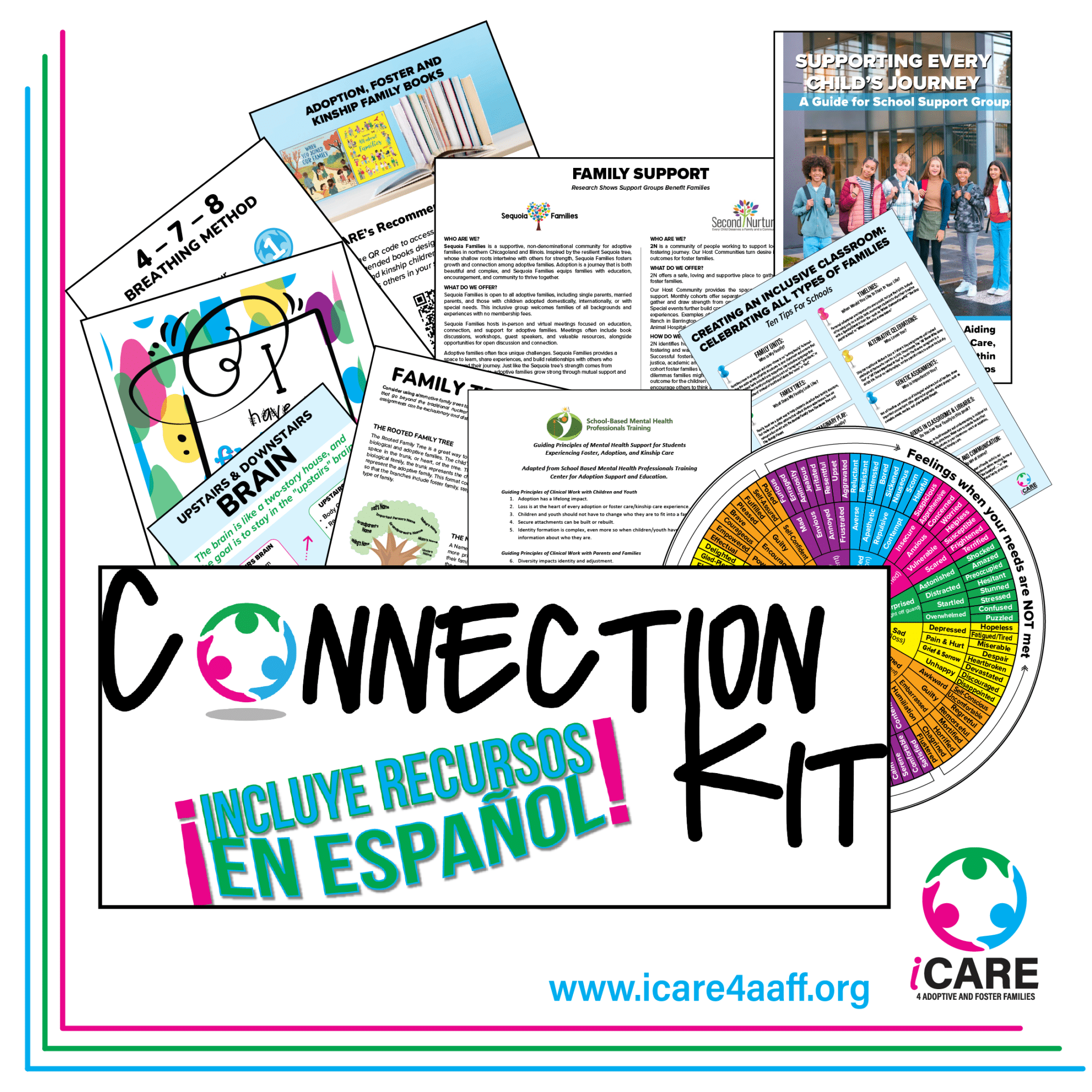The Urgent Need for Collaboration:
Public Safety Officers and Families in Supporting Foster, Adopted, and Kinship Children

When we talk about supporting foster, adopted, and kinship children, we’re not just talking about helping them get through their schoolwork or fit into the classroom. We’re talking about helping them feel safe, understood, and, most importantly, that they belong—at school, at home, and in their communities. But here’s the truth: without careful attention to how these children interact with both school professionals and public safety officers, things can quickly go awry. If the proper steps aren’t taken, these children’s already fragile attachment to their families can be severely disrupted, leading to greater confusion, emotional distress, and further trauma.
Children in foster, adoptive, or kinship care have already experienced significant loss, trauma, and instability. As a result, they often struggle with trusting adults and forming secure attachments, especially when the adults around them aren’t working in tandem. Children who have spent time in foster care or orphanages have not always experienced what a healthy family looks like or what a parent’s role is. Public safety officers—whether police officers, police social workers, or other law enforcement professionals—play an important role in keeping children safe, but when they step in without considering the child’s relationship with their caregivers, it can complicate their emotional development and undermine their bond with the very people who are supposed to be their greatest source of security: their families.
The Problem: When Attachment to Professionals Disrupts Family Bonds
The problem is clear, yet urgent. Children in foster care or adoption can easily form deep emotional bonds with public safety officers or school professionals who offer them attention and care. These relationships can feel like a lifeline for children who have been displaced or have experienced trauma. But without actively involving caregivers, these bonds can quickly create a disconnect that disrupts the family’s ability to form a secure attachment with the child.
Imagine a child who, in the middle of a crisis or a difficult moment, forms a strong attachment to a police officer who shows them empathy and understanding. This attachment can feel safer, more consistent, and more predictable than their relationship with their caregivers—who may be struggling with their own emotions or challenges. But when this connection is built without careful consideration of the family dynamic, the child may begin to rely more on that officer than on their parents or foster caregivers. This creates a confusing situation where the child may feel more secure with a professional than with their own family, deepening feelings of displacement and undermining the child’s ability to attach to their caregivers and trust them.
Moreover, many children in foster, adoptive, or kinship care exhibit outward aggressive behavior, which can often be misinterpreted as defiance or troublemaking. However, this behavior is often a manifestation of emotional dysregulation resulting from prior trauma. Children who have experienced attachment trauma may lash out because they are struggling to cope with overwhelming emotions. This is where empathy and understanding are key. Instead of reacting to the outward behavior with discipline or control, professionals—whether public safety officers, social workers, or educators—need to respond with empathy, offering stability and emotional support while helping the child manage their emotions. Understanding the root cause of these behaviors can guide more effective interventions and prevent further emotional harm.
Brenda Marwede, LCPC, explains it well: “Children who have experienced adoption, foster care, or early attachment trauma may often resist close relationships with caregivers, as feelings of safety in intimacy were once compromised. This can manifest as acting out, resisting affection, or creating conflict—coping mechanisms to protect themselves from the hurt and rejection they previously endured. As professionals supporting these families, our role is to encourage the child’s emotional growth by reinforcing the safety and stability of their current family. While the child may initially find looser connections less threatening, it is essential that we guide them toward forming secure attachments with their caregivers. By prioritizing and supporting this bond, we help create a foundation for healing and trust in the family dynamic.”
The Role of Public Safety Officers in Preventing This Disruption
Public safety officers are in a critical position to help mediate this confusion. They don’t just play a role in emergency situations—they often serve as the first line of defense when children are at risk or in crisis. But their job isn’t just about keeping children safe in the moment. They must also be aware of the emotional landscape these children are navigating, and actively involve caregivers in the process.
When public safety officers recognize the potential for a child to form attachments to them, they need to work closely with the caregivers to make sure the emotional bond with the family remains intact. This could mean ensuring that the officer’s involvement is temporary or that they actively encourage the child’s caregiver to step in as the primary emotional support. By reinforcing the importance of family connections, public safety officers can prevent the child from feeling torn between two worlds, ensuring that attachment to the family remains the primary focus.
The Urgency of Collaboration: Keeping Families Together
When children are caught between conflicting attachments—one to a public safety officer and one to a caregiver—it creates confusion and undermines the child’s ability to feel secure at home. But the truth is, this doesn’t have to happen. The urgency of this situation cannot be overstated. Children need collaboration between public safety officers, school professionals, and caregivers to ensure that the emotional support they receive is consistent and aligned.
School social workers and officers must actively work to keep the family unit at the center of the child’s emotional and behavioral development. This means not just addressing the child’s immediate needs but ensuring that those needs are being met in a way that reinforces their attachment to their caregivers. Law enforcement officers and school professionals must work together, communicating with caregivers every step of the way to avoid creating emotional disconnects that are so damaging to a child’s sense of security.
Moving Forward: A Unified Approach to Family Support
The path forward is clear: by creating a unified approach that includes both professionals and caregivers, we can ensure that children in foster, adoptive, and kinship care have the best possible chance for emotional growth and stability. Public safety officers play an essential role in keeping these children safe, and when the family is at the center of this support, we help foster stronger, more secure connections. We encourage public safety professionals, especially those in schools, to engage in the School-Based Mental Health Professional Training developed by the National Training Institute for the Center for Adoption Support and Education. This training provides the tools and understanding to offer the most effective and compassionate care for these children.
The time to act is now. By coming together—public safety officers, school professionals, and family members—we can create an environment where children feel safe, supported, and valued, both at home and at school. When we prioritize the importance of family bonds, we empower these children to thrive, fostering a deep sense of belonging within their families, schools, and communities.


